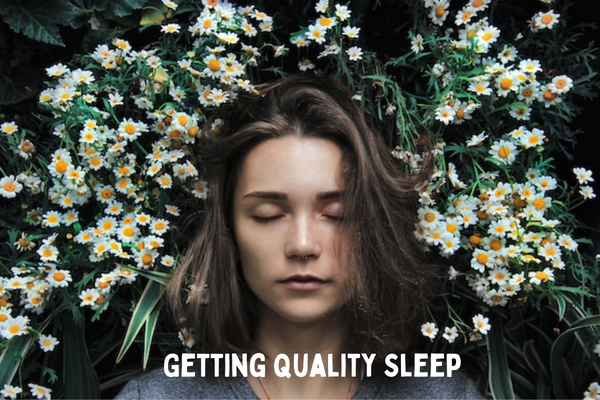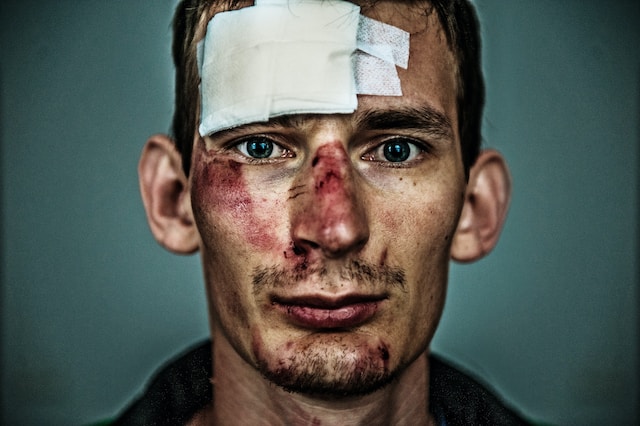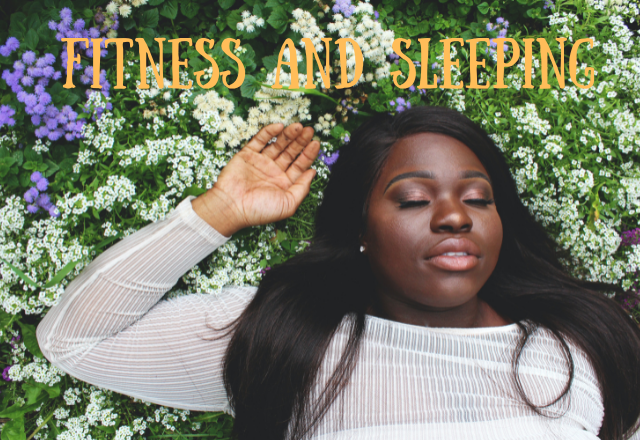Five Reasons that Sleep Deprivation is Dangerous

Sleep deprivation is horrible for your health and fitness.
Unfortunately, sleeping in on a Sunday morning won’t reverse the long-term effects of sleep deprivation. You might have heard that clocks going forward in the spring causes a spike in road accidents. Once you find out why, you’ll quickly realise that prioritising quality sleep is a must.
The average sleep time to shoot for will vary by person. Aiming for 7 to 9 hours in bed is the best starting point.
This page lists five of the bad health outcomes from low quality or low duration sleep.
Dangers of Sleep Deprivation #1 – Impaired Cognitive Function
Missing a single night of sleep and then driving is just as dangerous as being twice the legal drink-drive limit. Only a tiny percentage of people would even consider driving while drunk, yet sleep deprived driving is common.
This is the tip of the iceberg when it comes to impaired cognitive function from sleep deprivation. Add decision making problems, lack of concentration, lower problem-solving ability, and an increased risk of all types of accident.

Sleep Deprivation is Linked to Chronic (Killer) Health Conditions
The health conditions linked to lack of quality sleep are the big killers.
The include cardiovascular diseases, diabetes, and obesity. There is a proven link between lower sleep quality and an impaired immune system response. This means you are more likely to pick up infections when you are not fully rested. Keep in mind that the immune system is involved in responding to many more killer conditions.
Memory and Learning are Negatively Affected by Sleep Deprivation
Whether you are working age or still studying, sleep is a vital component of the learning process.
Memory function is the key. As your sleep duration and quality go down, memory takes a massive hit. You’ll find acquiring new skills difficult, and even pleasures like reading a book will not stick in your memory. While linked to the general detriment of cognitive function above, this should be reminder that we are not in a good place to learn, or function in a professional environment, while sleep deprived.

Lack of Sleep Makes You Accident Prone
As this is a fitness-focused site, I’ll relate this problem with sleep deprivation to working out.
You hit the gym with a sleep deficit, and your concentration / focus is shot. It only takes a small misstep to pick up an injury – something like bad form lifting, or a stumble on a treadmill could put you out of action for weeks.
All those gains, all that effort would be gone in a sleep-deprived instant.
Sleep Deprivation and Mental Health Issues
The phases of sleep are vital for mental health, as well as physical wellbeing.
This works in two ways. First, the direct link with depression, anxiety, and bipolar disorders. The lass sleep you get, the more likely you are to develop these problems.
Secondly, anyone prone to mental health issues will find them exacerbated by sleep deprivation. This can include the risk of developing new ones, as well as existing conditions being worsened.

Wrapping Up: Sleep Deprivation is Dangerous – Here is How to Improve Your Sleep Quality
If you were not already aware of the dangers, the list above will make it clear that sleep deprivation is risky to your physical and mental wellbeing.
Here are my five tips for better sleep quality:
- Get in a Routine: Going to bed at the same time and getting up at the same time is a great way to train yourself into great sleep habits.
- Morning Sunlight: This hack works wonders, get (safe) sunlight early in the morning to set your circadian rhythm on the right path.
- Caffeine Care: Lay off the coffee from around noon, be careful with tea in the evening. As a bonus, stopping all liquids a few hours before bed will avoid disruptive pee breaks.
- Booze in Moderation: Alcohol will murder your sleep quality. As will eating too late in the evening, avoid both where possible.
- Sleep Environment: Make sure your bedroom is dark, cool, and quiet – and avoid blue lights / screens in the hour or so before you sleep.
More Popular Pages this Month:
- The Many Health and Fitness Benefits of Owning a Dog
- ProForm Treadmills: All the Current Models Compared
- Busting Myths Around Creatine
- Healthy Ageing Quick Wins
- Sarcopenia Prevention Guide